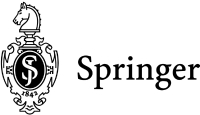2 Examination of Mass Customization Through Field Evidence
Bart MacCarthy,
Philip G. Brabazon and Johanna Bramham
Mass Customization Research Centre, School of Mechanical,
Materials, Manufacturing Engineering & Management, Nottingham University,
UK
Mass customization excites interest across both the research community
and business and industry. However there are issues and question marks
over what it means and how it may be realized. More evidence of practice
is required to understand the implications of adopting a mass customization
strategy. This chapter presents five case studies from a range of sectors
- bicycles, computer assembly, communications components, mobile phones
and commercial vehicles - and analyzes their approaches to customization
as well as their modes of operations. The type of the customization practiced
by these different businesses is identified in terms of dimensionality
(fit/size), hardware functionality, software functionality, properties
of the whole product, grade, quality level, aesthetics and style, personalization,
literature and packaging. All five businesses offer more than one type
of customization. The implications of customizing different product attributes
are discussed. The operational modes observed in the case studies are
analyzed with respect to a typology of five modes of mass customization
presented elsewhere. The reasons why different operational modes occur
in different environments are speculated on. The chapter contributes to
understanding both the potential for mass customization and the constraints
under which real mass customizers may operate.
|


